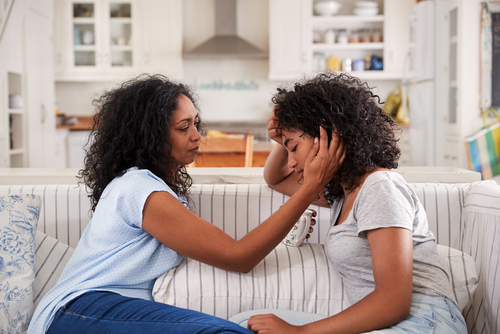Obsessive-compulsive disorder (OCD) is experienced by nearly 1 in 4 adults in the United States, and 1 in nearly 100 children. OCD is considered a mental disorder and involves several obsessions (also known as unwanted thoughts) and compulsions (also known as repeated actions). Shows like the Big Bang Theory tend to depict typical symptoms talked about with OCD, such as knocking on the door a certain number of times. However, it’s important to recognize that OCD can also involve symptoms not commonly talked about on television. Rituals in OCD are guarded by specific obsessions, which serve as feelings of fear, disgust, doubt, or blocking important activities that a person would like to take place. Take a look at some of the most common obsessions associated with OCD: Concerns with coming across another person’s bodily fluids, germs, disease, environmental contaminants, household chemicals, and dirt. A deep fear of harming oneself, others, having horrific images in one’s mind, fear of blurting out insults or obscenities, fear of stealing things. Excessively worrying about harming someone else due to carelessness, fear of being responsible for something horrible happening. Sincere concerns with evenness or exactness, worrying about needing to know or remember something, fear of losing valuable information, having difficulty deciding what should be thrown away versus kept. Serious fears of sexual thoughts or perverse images in one’s head, worries about homosexuality, concerns over perverse thoughts regarding children or incest, obsessions regarding aggressive sexual behavior towards others. Becoming overly concerned with offending God or another higher power, excessive concern over being morally wrong, and more. If you have been diagnosed with OCD, you may find much that it brings a lot of distress to your daily life and that certain reactions actually perpetuate the symptoms. Obsessions in OCD are what guide individuals to perform ritual behaviors such as repeating, checking, cleaning, washing, counting, collecting, and more. Speak with a professional from Avalon Malibu today to learn more about how treatment can provide you with the tools you need to better manage your symptoms.
At Arbor Behavioral Healthcare, you will meet knowledgeable, compassionate professionals that understand addiction in all its forms. The Arbor uses an integrative and holistic approach to treat addiction and mental health issues. No treatment is one-size-fits-all, and at The Arbor, you will have a team of experts prepared to create your customized treatment plan. We offer care for your mind, body, and spirit so that you can heal from the inside out and look forward to a lifetime of sobriety and wellness. If you are ready to take the first step in your recovery, please call us at 844-413-2690.

